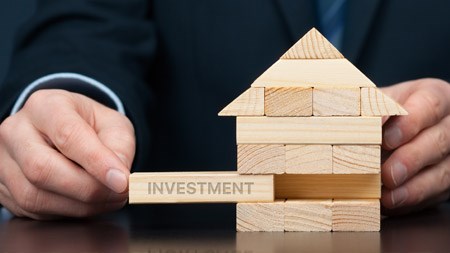Investing in rental property can be a sound investment but it’s not for everyone. There are a number of factors to consider before you decide to go ahead.
Over the years you’ve heard great things from friends and various others about the benefits of investing in rental property. It makes sense really. Renting a property represents a relatively sound way to pay the property off while it appreciates. Theoretically, once paid off, you should also benefit from an additional income stream should you continue leasing the property.
Investing in a rental property is not for everyone though as there are risks involved and inevitably, issues crop up.
The following 12 points should give you a fair idea as to whether or not investing in a rental property is for you:
- Upfront costs: As is the case with any property purchase there are several significant up-front costs which need to be catered for. These include bond costs, attorneys’ fees, bank initiation fees and transfer duty. It goes without saying that you need to be in a financially sound position before you can consider extending yourself financially to a rental property. Qualification for a bond (if applicable) will depend entirely on your unique financial circumstances and your ability to reliably service a loan.
- Ongoing costs: Again, as is the case with all properties there are ongoing costs which need to be factored in to your budget. Examples of ongoing costs include sectional-title levies (if applicable) rates and taxes, insurance and maintenance. It’s also a good idea to put away money for unexpected/emergency costs such as an insurance excess payment, re-tiling or damage which may not be covered by your insurance.
- Ownership legalities: It’s important to consider the legalities involved with rental properties. For instance, how do you intend to register the property? Will it be registered in your own name, a family trust or a property holding company? In whose name will the loan be taken out?
- Unlet periods: Do you have a plan/funds to cover the costs of your rental property if it’s standing empty? If you are depending entirely on the property being let all the time to cover the costs you may wind up in a sticky situation.
- Rent: The rent you charge will depend on several factors. These include property type, location and proximity to transport and amenities as well as supply and demand. Obviously these points should play a major role in your property purchase decision. The more boxes a tenant can tick, the more likely you will be able to charge a premium.
- A strong rental agreement: It is vitally important to have a strong rental contract in place before allowing a tenant to move in. Such contracts form the backbone of any legal disputes and effectively protect your rights as a property owner.
- Rental law: Are you aware of the law relating to rental properties and tenants’ rights? If not, ask your lawyer to provide a basic break-down of some of the most pertinent laws relating to this arena before committing to a purchase. You may find that you’re not comfortable with the legal framework.
- Tax law: Owning a rental property doesn’t mean the rent paid is yours for the keeping. As a landlord you need to pay tax on the money received from tenants. Failure to do so can land you in hot water with SARS.
- Rental property insurance: You may want to investigate the possibility of rental insurance. If a tenant fails to pay or damages your property and absconds, you could be left with a large bill and very little chance of recouping the money. This fee will of course, have to be added to your on-going costs.
- Management: Another important factor to consider when weighing up whether or not to buy a rental property is whether you want to manage it yourself or if you want to use a rental agency to do this for you. If you do handle the rental yourself, you will need to undertake all the duties relating to the property which can be stressful and time consuming. An agency will essentially carry out the same duties but at a cost.
- Tenant vetting: In line with having a strong rental agreement, it’s also vitally important to thoroughly vet prospective tenants before allowing them to take up occupation. Be sure to obtain a comprehensive credit check and get references. Failing to do so could cost you dearly in the long term.
- Furnished or unfurnished: It’s important to decide from the outset whether or not you are going to furnish your property. If you are going to furnish it, you will have to budget accordingly for the added expense and ongoing wear and tear. Obviously the rent would have to be adjusted accordingly but it may well be that neither you nor prospective tenants will be able to afford the added expense.
Careful consideration of these factors will help you make the right property investment decision. If you decide to go ahead with your property purchase, visit Private Property for the widest selection of property for sale across South Africa .




